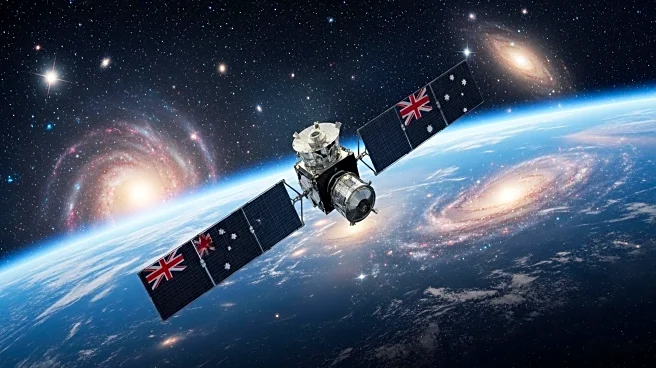What's Happening?
Australia and the United Kingdom have reaffirmed their commitment to space-related cooperation by re-signing the Space Bridge Framework Arrangement. This agreement, initially established in 2021, aims to expand investment, research, and cooperation between the two nations in the space sector. The signing took place at the International Astronautical Congress in Sydney, with Enrico Palermo, head of the Australian Space Agency, and Paul Bate, chief executive of the UK Space Agency, leading the initiative. The Space Bridge facilitates collaboration between companies and academic groups in both countries, with government support for research and development. Notable projects under this framework include AquaWatch, which focuses on water-quality monitoring, and the Long Baseline Multistatic Radar for Deep Space Domain Awareness, which involves partnerships with institutions like the Massachusetts Institute of Technology Lincoln Laboratory.
Why It's Important?
The renewal of the Space Bridge partnership underscores the growing importance of international collaboration in the space industry. By fostering joint projects and regulatory cooperation, both Australia and the UK aim to strengthen their spaceflight ecosystems. This collaboration not only enhances technological advancements but also supports economic growth through increased investment and job creation in the space sector. The projects funded under this agreement, such as AquaWatch and the radar initiative, highlight the potential for significant scientific and environmental benefits, including improved water quality monitoring and enhanced space domain awareness. The partnership also positions both countries as key players in the global space industry, potentially influencing future international space policies and collaborations.
What's Next?
The continuation of the Space Bridge partnership is expected to lead to further joint projects and increased funding opportunities for space-related research and development. Stakeholders from both countries, including government agencies, academic institutions, and private companies, are likely to explore new areas of collaboration, particularly in emerging technologies and space exploration. The success of current projects may encourage other nations to seek similar bilateral agreements, potentially expanding the network of international space cooperation. Additionally, the outcomes of these projects could inform future policy decisions and regulatory frameworks, shaping the direction of the global space industry.










